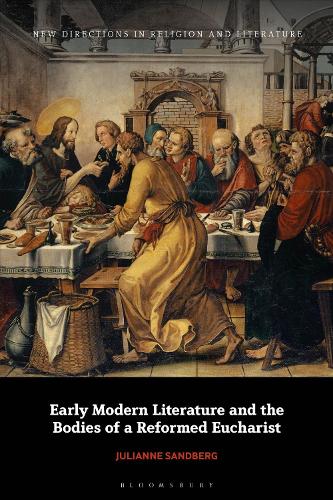
Early Modern Literature and the Bodies of a Reformed Eucharist: Flesh Like Mine
(Hardback)
Publishing Details
Early Modern Literature and the Bodies of a Reformed Eucharist: Flesh Like Mine
By (Author) Julianne Sandberg
Bloomsbury Publishing PLC
Bloomsbury Academic
23rd January 2025
United Kingdom
Classifications
Professional and Scholarly
Non Fiction
Literary studies: plays and playwrights
Literary studies: c 1400 to c 1600
Literary studies: c 1600 to c 1800
820.93582
Physical Properties
Hardback
184
Width 162mm, Height 238mm, Spine 18mm
440g
Description
Examining what the eucharist taught early modern writers about their bodies and how it shaped the bodies they wrote about, this book shows how the exegetical roots of the Eucharistic controversy in 16th century England had very material and embodied consequences. To apprehend the nature of Christs bodyits nature, presence, closeness, and efficacyfor these writers, was also to understand ones own. And conversely, to know ones own body was to know something particular about Christs. Sandberg provides new insights into how Edmund Spenser, William Shakespeare, John Donne, and Aemilia Lanyer use the reformed eucharistic paradigm to imagine the embodied significance of the sacrament for their own bodies, the bodies of their narrative subjects, and the body of their literary work. She shows the significance of this paradigm was for poets and playwrights at this time to represent the embodied self and negotiate how the body was read, interpreted and understood.
Reviews
The book weaves together literary studies and religious studies with a fresh and materialist approach, and yields useful and important new perspectives on the assembled writers and texts. * Kimberly Johnson, Brigham Young University, USA *
Author Bio
Julianne Sandberg is an Assistant Professor of English at Samford University, USA.
